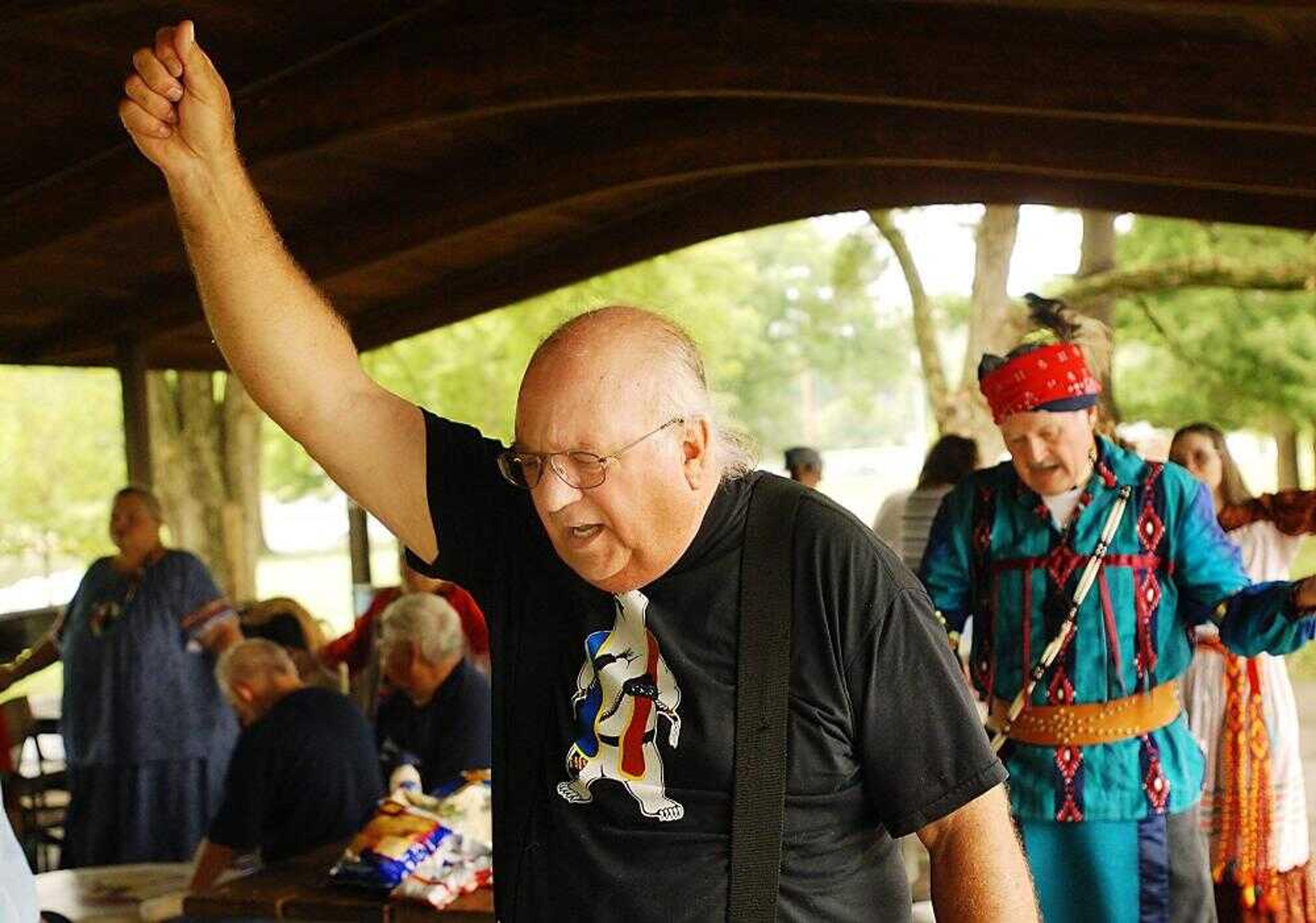Northern Cherokee Nation holds reunion at Capaha Park
About 35 people attended Saturday's reunion of the Northern Cherokee Nation of the Old Louisiana Territory at Capaha Park in Cape Girardeau. The group has 10,000 members nationwide and about 3,000 from Southeast Missouri. Ordinarily the reunion is held in Columbia, Mo...
About 35 people attended Saturday's reunion of the Northern Cherokee Nation of the Old Louisiana Territory at Capaha Park in Cape Girardeau.
The group has 10,000 members nationwide and about 3,000 from Southeast Missouri. Ordinarily the reunion is held in Columbia, Mo.
The daylong event kicked off with a silent auction followed by a state of the nation address by Chief Beverly Baker. Regalia, storytelling, beadwork and Cherokee literature presentations were part of the reunion.
Baker's big news for the group was the petition for federal recognition that was submitted in June to the Bureau of Indian Affairs.
"We were asked if we wanted to submit further documentation, and we'll give it to them," she said. The documentation will include records of correspondence between the Northern Cherokee Nation, the Bureau of Indian Affairs and U.S. government officials.
Her advice to the group, with members from Oklahoma, Kansas, Tennessee and Missouri in attendance, was to get involved and stay involved with the group. "We've got to start showing numbers. If you say your grandma was part Cherokee, that makes you Cherokee."
Getting recognition, Baker believes, may lead to help with education, housing and health care. One of her major concerns is education.
"Our children are left behind and this definitely needs to be changed," she said. "Often it's because educators don't understand our culture."
For instance, "the young ones don't look directly into the eyes of an elder," said Conchita Ballard, a Northern Cherokee Nation representative from Kansas. A longtime volunteer educator of American Indian culture in schools, she said, "Every teacher would like the information to understand the culture. It's just that educators are not informed. At education days they're happy to learn."
Glinda Ladd-Seabaugh of Cape Girardeau, a member of the Northern Cherokee Nation for more than a dozen years, takes Cherokee presentations around to schools to teach about the tribe.
"Most children only know the stereotypes," she said. "We were not savages, didn't live in tepees and printed copies of the Bible in Cherokee and English. In 1839, we were an affluent group living in three- and four-story mansions."
The Cherokee Trails American Indian craft shop on Broadway, owned by the Seabaughs, operates as a satellite office for the group. The ground floor houses tribal offices, which contain roll books dating back to the 1700s that are used for tracing family lineage.
"Many of our ancestors chose slavery to keep their freedom," Ladd-Seabaugh said. "My own relatives in Bollinger County in the 1700s lied about who they were so they wouldn't lose their property. They would call themselves Black Dutch or Black Irish."
cpagano@semissourian.com
335-6611, extension 133
Connect with the Southeast Missourian Newsroom:
For corrections to this story or other insights for the editor, click here. To submit a letter to the editor, click here. To learn about the Southeast Missourian’s AI Policy, click here.









